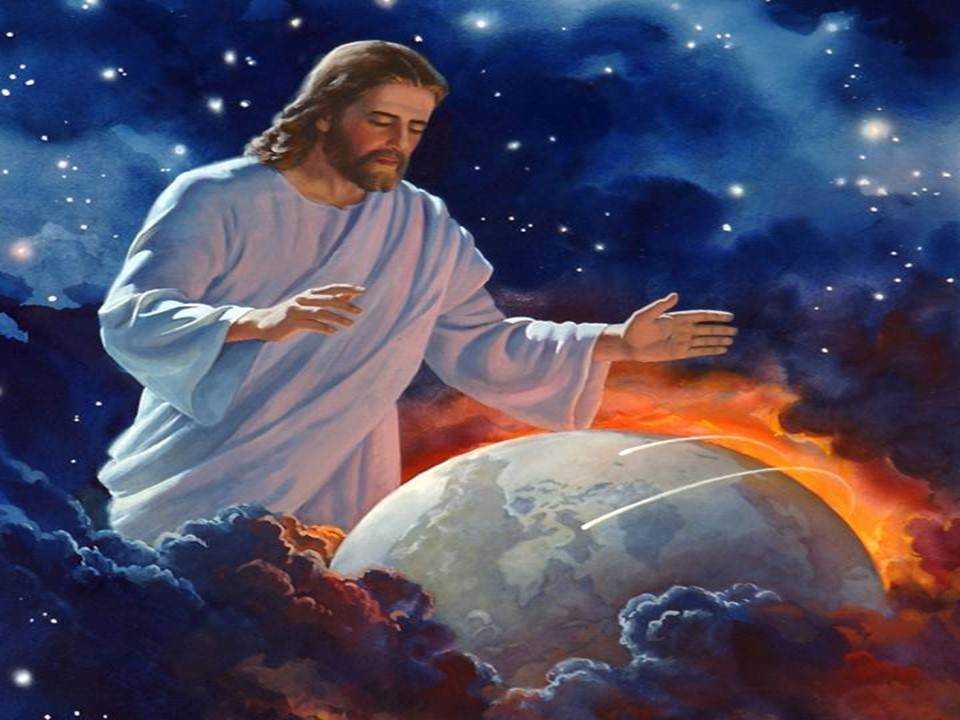LESSON 5
HIS ONLY BEGOTTEN SON: AN EXPOSITION ON CHRIST'S WORDS IN JOHN 3:16
You are welcome to another edition of Insights from God's Word, a Bible study programme that is committed to sharing God's Word by allowing the Bible to speak for itself.
In this edition, we continue with our series on The Godhead. The topic for this study is: "... His only begotten Son...": An exposition on Christ's words in John 3:16. The complete message in this text reads: "For God so loved the world, that he gave his only begotten Son, that whosoever believeth in him should not perish, but have everlasting life" (John 3:16).
One of the popular interpretations in regard to the above text within Christendom today is that Christ was "begotten" or brought forth at a point in time by the Father, and therefore He is not eternal or divine in nature. But beloved, this teaching that Christ was created at a point in time because the Scripture portray Him as the "only begotten Son" of God is contrary to the principle of the unity of the entire Scripture (see John 10:35). This is because the Scripture provides several key evidences which attest to the eternal divine nature of the Son of God (see Isaiah 9:6; Isaiah 43:11; Micah 5:2; John 1:1-3; Philippians 2:5-11; Hebrews 1:6-8; Colossians 1:15-18; Revelation 1:8).
Now since the Scripture does not contradict itself, it is clear that the expression "only begotten Son" in John 3:16 will have a different interpretation instead of the literal assertion that Christ was brought forth at a point in time, and hence cannot be divine. It is interesting to note that the Greek word 'monogenes' which is translated 'begotten' in John 3:16 can be interpreted in a variety of ways. In the KJV and NKJV, this Greek word is interpreted variously as ‘only’, "only child" or "only begotten". In respect to the interpretation of the word ‘monogenes’ as 'only', we find the following examples in Scripture:
i) "Now when he came nigh to the gate of the city, behold, there was a dead man carried out, the ONLY son of his mother, and she was a widow: and much people of the city was with her" (Luke 7:12; Capital Emphasis Added).
ii) "For he had one ONLY daughter, about twelve years of age, and she lay a dying. But as he went the people thronged him" (Luke 8:42; Capital Emphasis Added).
In respect to the interpretation of the word 'monogenes' as "only child", we find this example in Scripture: "And, behold, a man of the company cried out, saying, Master, I beseech thee, look upon my son: for he is mine ONLY CHILD" (Luke 9:38; Capital Emphasis Added).
In respect to the interpretation of the word 'monogenes' as "only begotten", we find six examples in Scripture. One of these six examples is used in reference to Isaac (see Hebrews 11:17), while the other five are used in reference to Christ (see John 1:14; John 1:18; John 3:16; John 3:18; 1 John 4:9). It is interesting to note that the interpretation of monogenes as "only begotten" does not imply the natural process of producing children. Rather, the expression basically mean without peer or unique. In respect to this Greek interpretation of monogenes as unique, we find some clear examples in Scripture as follows:
1. ISAAC: THE UNIQUE SON OF PROMISE
The Scripture makes it clear that Abraham gave birth to several children (see Genesis 16:15-16; Genesis 21:1-4; 1 Chronicles 1:32). However, the apostle Paul described Isaac, the second son of Abraham in the following unique way: "By faith Abraham, when he was tried, offered up Isaac: and he that had received the promises offered up his ONLY BEGOTTEN SON" (Hebrews 11:17; Capital Emphasis Added).
Friends, even though Isaac was not the only son of Abraham, he was the only one through whom the manifold promises of God to the patriarch could be fulfilled. In other words, Isaac was the 'monogenes' or unique son of promise; for the Lord made it clear to Abraham that "in Isaac shall thy seed be called" (Genesis 21:12; Hebrews 11:18). Thus, it is in the sense of Isaac's uniqueness as the son of promise that the apostle Paul referred to him as the "only begotten son" of Abraham.
2) CHRIST: THE UNIQUE SON OF GOD
In several portions of Scripture, believers are described as sons and daughters of God (2 Corinthians 6:18; Galatians 3:26; Romans 8:14; John 1:12). However, in John 3:16, Christ is described as the "only begotten Son" of God. The complete text reads: "For God so loved the world, that he gave his ONLY BEGOTTEN SON, that whosoever believeth in him should not perish, but have everlasting life" (John 3:16; Capital Emphasis Added).
As we noted earlier in relation to Isaac, the expression "only begotten Son" in John 3:16 does not mean Christ was "begotten" or brought forth at a point in time. However, just as in the case of Isaac, Christ is the unique Son of God through whom the world was to be saved. Moreover, besides His unique role as the only Saviour of the world (Acts 4:12), the Son is also unique in the sense of His divine nature as God (John 1:1-3). From John 1:14, we read the following expression in relation to the unique nature of Christ: "And the Word was made flesh, and dwelt among us, (and we beheld his glory, the glory as of the ONLY BEGOTTEN OF THE FATHER,) full of grace and truth" (Capital Emphasis Added).
Beloved, the text above clearly reveal that the sonship of Jesus does not in anyway suggest that He is a created being. For the "only begotten of the Father" is the same Word that was there in the beginning with the Father, and was described by John as God. We are told that "All things were made by him; and without him was not any thing made that was made" (review John 1:1-3).
3) From the scriptural passages we have reviewed so far, it is clear that the expression "only begotten Son" as found in John 3:16 (and other places in the writings of John) does not mean that Christ was created or brought forth into existence at a point in time. It is clear that just as Isaac was the unique son of promise, so was Christ the unique divine Son of God through whom the world was to be saved. It is interesting to realise that this understanding harmonises with several passages in the Old and New Testaments that prove the eternal divine nature of the Son of God.
Exhortation: In the land of Moriah, where Isaac willingly offered up his life to Abraham as a sacrifice (see Genesis 22:1-19), the Son of God also willingly gave up His life as a sacrifice several centuries later (see Matthew 27:27-50). Even though God intervened in the case of Isaac, the only begotten son of Abraham, He forsook Christ, His only begotten Son to die an ignominious death so mankind could be redeemed from the wretchedness of sin. The story of how the Creator God could take upon Himself the penalty of His disobedient creatures so He could save them will continue to amaze all intelligent beings throughout the ceaseless ages of eternity. It is my prayer that this infinite love that the Father has showed us through the sacrifice of His Son will lead us to yield our hearts unto Him, and actually help us to surrender all at the foot of the cross.
In our next study, we will consider the topic: "... the beginning of the creation of God": An exposition on Christ's words in Revelation 3:14. The Bible Study references for this study are Revelation 3:14, Revelation 1:8, Colossians 1:16-17 and John 1:1-3. Please do well to go through these passages before the next study is released.
Stay blessed and keep shining for King Jesus.
Maranatha!
Powered by White Throne Ministries
















